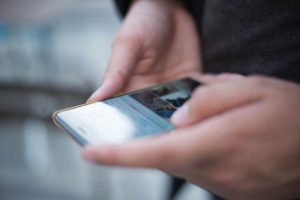Why does the United States have the most people in prison in the world? As a nation that prides itself on our legal system and freedom, why is our goal to punish? What is it that drives us to destroy people’s lives? Locking someone in a cage because they took or sold drugs might make them hurt but, how does that cage help them heal? Where did we learn that separating families and friends from community and society contributes to making this the nation we think we are? Why are we angry at the poor, confused, and alienated? When will we, as a people, stop allowing murder in our names? Are we working to stop the fear and violence at the hands of those called to protect us? The people who are struggling to maintain health and well-being are often those who end up beaten down.
We, as people, are broken. With our incorporation of a military mindset into public safety, we have lost the expectation of growth and wonder. That failing has developed this we/them mentality. What can be easier than to take our frustration and rage out on those that are visibly different? Somewhere along in our history, we have sent a paramilitary officer to bring down the hyperactive person. It happened not just recently, but in our history, we blamed the criminal and the mentally ill. We keep them apart to keep us safe and unique. It happened when we took the fact of slavery in the Christian and Jewish scriptures as permission to own people and treat them as less than ourselves. Mosaic Law demands that slaves, servants, and sojourners are treated like family and giving respect and care. The widow, sick, disabled, and leper was seen as unclean and outside of the community. Yet the law made provisions for their survival.
Our laws took the act of tribal sales of slaves as approval of the opinion that slaves and people of color were not like us. Worse, legislation allowed slaves that died when being corrected was not a criminal act. That legal decision further denigrated our difference, separating us once again.
That belief has carried into our discourse as we denigrate those who are not us. And it happens throughout every faith community, in some ways in every ethnic and racial grouping because we hold each other separate.
We should be providing for our communities’ safety, grounded firmly in the ideal that seeks to heal and redeem.
What prompts us to respond to anything that challenges us with revenge and hate. Why don’t we learn that our lives, corporately, are threatened, by any violence, whether mob or legal structures, we flee or fight back? Or worse, we affirm the dynamic of we-them that has destroyed so many lives and relationships.
Where is the Us? Do we want revenge? If so, there is no us, only separation. We offer to heal an invitation to be us with a willingness to share a fresh cup of water. A recognition that some sing a song of lament that reflects the pain of all of our community. The authors are the voice of those broken and are cries for healing and unity, maybe in anger, but the words are ours in the purest form.
Us, the whole, takes the broken and holds them close. We gather those cast out and offer shelter in the community. Asking forgiveness is offering redemption for the brokenness of society. We can shed our fear and walk together. Oh, to journey well!


